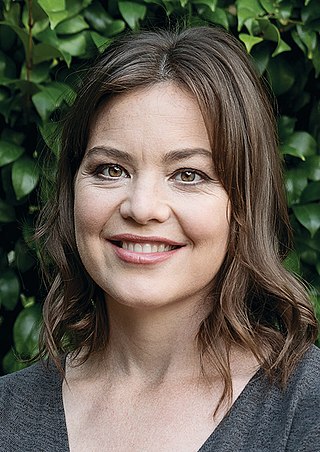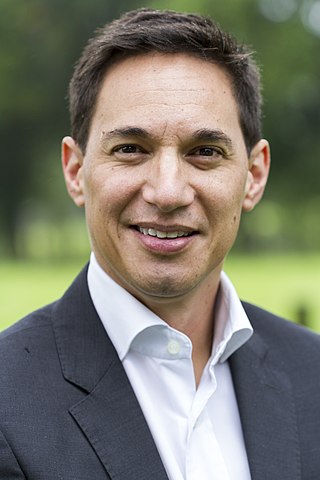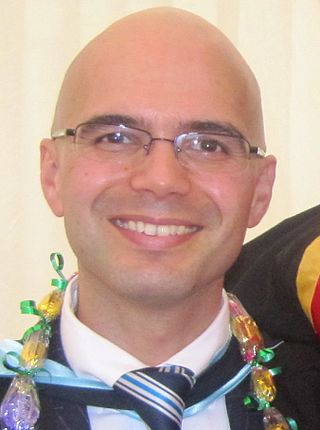The Green Party of Aotearoa New Zealand, commonly known as the Greens, is a green and left-wing political party in New Zealand. Like many green parties around the world, it has four organisational pillars. The party's ideology combines environmentalism with left-wing and social-democratic economic policies, including well-funded and locally controlled public services within the confines of a steady-state economy. Internationally, it is affiliated with the Global Greens.
United Future New Zealand, usually known as United Future, was a centrist political party in New Zealand. The party was in government between 2005 and 2017, first alongside Labour (2005–2008) and then supporting National (2008–2017).

Aotearoa Legalise Cannabis Party (ALCP), also known as the Cannabis Party, is a political party in New Zealand. It is dedicated to removing or reducing restrictions on the use of cannabis and similar substances. It was founded in 1998 and has stood in every general election since, but has never won representation in Parliament. Several of its members have gone on to political success after leaving the party.

The Bill and Ben Party was a New Zealand joke political party formed in 2008 and voluntarily deregistered in 2010. The party's leaders were Jamie Linehan and Ben Boyce of the TV3 satirical sports show Pulp Sport. In the 2008 general election the party secured 0.56% of the vote, outpolling every other party not in parliament prior to the election. It gained the ninth-highest number of votes out of the 19 parties standing for election.

Heather Janet Logie is a New Zealand politician and a member of the New Zealand House of Representatives. She is a member of the Green Party of Aotearoa New Zealand.

Julie Anne Genter is an American-born New Zealand politician who is a member of the House of Representatives representing the Green Party of New Zealand. She served as the Minister for Women, Associate Minister for Health and Associate Minister for Transport during the first term of the Sixth Labour Government. She holds dual citizenship of New Zealand and the United States.
Focus NZ was a political party in New Zealand. Founded as "NZ Rural", the party was based in Northland and represented the interests of business owners, producers and provincial communities. Areas of concern include the exchange rate and empowerment of communities.

James Peter Edward Shaw is a New Zealand politician and a leader of the Green Party of Aotearoa New Zealand. Voters elected Shaw to the New Zealand parliament at the 2014 general election as a list representative of the Green Party. The party selected Shaw as its male co-leader in May 2015. Following Metiria Turei's resignation in August 2017, Shaw became the party's sole leader for the duration of the 2017 general election.

The New Zealand People's Party is a political party in New Zealand. The party was established in 2015 and has a particular focus on the rights of immigrants. It operated as an independent party for a 2016 by-election and the 2017 general election, and as a component party of Advance New Zealand for the 2020 election. The party's leader, as of September 2020, is Anil Sharma.

The Opportunities Party is a centrist political party in New Zealand. It was founded in 2016 by economist and philanthropist Gareth Morgan and is currently led by Raf Manji. The party is based on the idea of "evidence-based policy", with policy priorities of a “fair tax system” by implementing a "tax switch" as well as "universal basic income (UBI)", "affordable housing", "the Teal Card", a "Christchurch Plan" and "Climate Opportunities". As well as focusing on policy which includes Public Services and Economy.

The 2020 New Zealand general election was held on Saturday 17 October 2020 to determine the composition of the 53rd parliament. Voters elected 120 members to the House of Representatives, 72 from single-member electorates and 48 from closed party lists. Two referendums, one on the personal use of cannabis and one on euthanasia, were also held on the same day. Official results of the election and referendums were released on 6 November.

Seventy-one members of the New Zealand House of Representatives were elected from electorates in the general election on 23 September 2017.
The Teal Deal is a hypothetical blue–green political alliance between the Green Party of Aotearoa New Zealand and the New Zealand National Party. The term Teal Deal is a reference to the medium blue-green colour teal, which combines the political colours that represent the two parties.

The Young Greens of Aotearoa New Zealand is the youth wing of the Green Party of Aotearoa New Zealand, and a member of the Global Young Greens. The Young Greens represent Green Party members 35 years of age and under. The Young Greens were founded by MP and then Young Green Gareth Hughes in 2006.

The 2018 Northcote by-election was a New Zealand by-election that was held in Northcote on 9 June 2018. The seat became vacant on 15 April 2018, following the resignation of then-Member for Northcote Jonathan Coleman, a member of the New Zealand National Party.

Vision NZ is a nationalist political party in New Zealand led by Hannah Tamaki, the co-leader of the fundamentalist Christian movement Destiny Church. Its policies have included opposition to abortion, homosexuality, immigration, and the construction of new mosques. It has supported creating a Māori-owned bank and Tūhoe ownership of Te Urewera and has called for government funding for Destiny Church programs.

This page lists candidates contesting electorates in the 2020 New Zealand general election.

Vernon Ivan Tava is a barrister living in Auckland, New Zealand. He is the founder and leader of the Sustainable New Zealand Party and a former candidate for the Green Party of Aotearoa New Zealand.

The Integrity Party of Aotearoa New Zealand (TIPANZ) is an unregistered political party in New Zealand. It is a progressive-centrist party, with an ideology of Hauora (well-being), equality, and integrity. It is led by Helen Cartwright with Troy Mihaka as deputy.
The New Zealand TEA Party is an unregistered political party in New Zealand. The party is led by John Hong. The party contested the 2020 general election, but did not win any seats.














